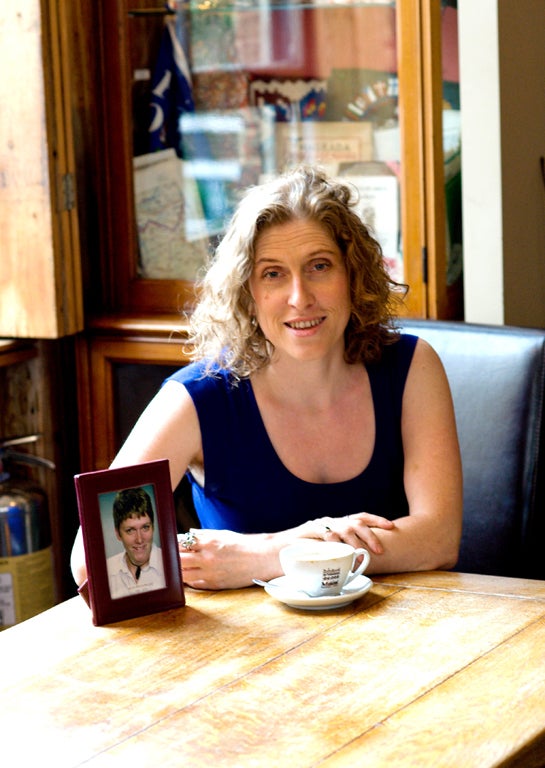Sometimes I Laugh Like My Sister, Finborough Theatre, London

Rebecca Peyton describes the moment she knew her sister had died with this unholy, guttural noise from the back of her throat.
Onstage she is revisiting the February day in 2005 on which, surreally, while in a car with a friend near London’s Charing Cross, Rebecca’s mother, far away in Johannesburg, made that unholy noise to her down the phone. The primal, gurgling sound confirmed her worst fear- that her BBC journalist sister, Kate, had died of her injuries after being shot while reporting in Mogadishu, Somalia.
Peyton’s 85 minute one-woman show, Sometimes I Laugh Like My Sister, is a visceral true story of the grief, confusion and beauty that have consumed life since her eldest sibling died seven years ago. Written by Peyton in collaboration with the show’s director, Martin M. Bartelt, it is quite clearly a play, but it is presented casually, as if Peyton thought she’d just get up and address the small audience on whim. It had a successful run in Edinburgh 2010 and toured last year.
The actress, who knew within days of her sister’s murder that she wanted to make a show out of her experiences (it was initially going to be titled 101 Uses For A Murdered Sister), posits verbal ripostes in the play to her friends’ bewilderment at her need to keep on, talking, talking and re-examining her turmoil verbally: “I believe you can disempower something by naming it…So, I want to talk about things that matter and I want to listen and engage with discussions about death, destruction and…liver disease!”
So, night after night in the theatre she names the worst experience of her life. She moves the audience to tears (I was not the only one snivelling), her eyes go all glassy and she appears moments from weeping, before hoisting us back from slack jaw despair with jokes.
For just over an hour the audience is plunged into that peculiar twilight zone of the aftermath: the stinging shock, the incomprehension of the awfulness, the surprise that smile muscles in your face still function. That terrible need to laugh in the face of tragedy. Peyton cleverly harnesses these universal responses and lays herself very bare. The effect is at once compelling, softened by her humour and charming wish to confide in the audience. But it is also all too real, and were it not for the forgivingly short length of time in which her story is relayed, the audience might turn away from the veracity of the horror.
Join our commenting forum
Join thought-provoking conversations, follow other Independent readers and see their replies
Comments
Bookmark popover
Removed from bookmarks